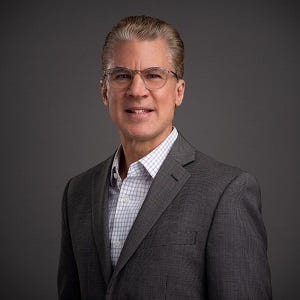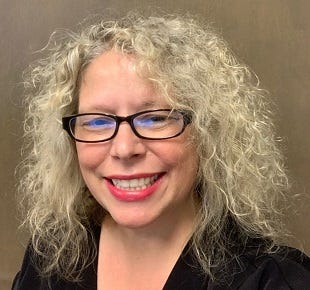One Company's Experience With Data Center Sustainability CertificationOne Company's Experience With Data Center Sustainability Certification
Sustainability is an increasing focus of data center management. DEEP certification allows companies to independently verify that they are meeting sustainability criteria.

Data centers require massive amounts of energy to run. Powering servers and controlling the temperature of the buildings that house them place increasing demands on the energy grid. A widely cited 2016 report from the Lawrence Berkeley National Laboratory indicates that at the time data centers accounted for 1.8% of electricity consumption in the United States. This percentage is likely to have increased given the growing data center market.
Concern over the energy cost and sustainability of this market has spurred increasing efforts to cut energy usage and reduce equipment waste. The green data center market is projected to grow to some $24.2 billion dollars by 2028.
Data center operators are now eager to display their sustainability bona fides. One mechanism of doing so is through independent data center sustainability certification. Among the most rigorous is the Data Center Efficiency Evolution Program, or DEEP, introduced in 2021. (DEEP is run by InformationWeek's parent company, Informa.) During a DEEP evaluation, data centers are measured against over 70 best practices in airflow management, mechanical systems, electrical systems, and processes and given guidance on how to decrease water usage, improve e-waste management, and make other improvements to sustainability practices.
Data center manager Rebecca Beard and Bill Thomson, vice president of marketing and product management, spoke to InformationWeek about their experience with DEEP data center certification. DC BLOX runs data centers in Atlanta, Birmingham, Huntsville, Chattanooga, and Greenville, and is rapidly expanding to other locations. The company has emphasized sustainable practices in developing its new centers.
What led your organization to seek DEEP certification?
Bill Thomson: I first became aware of the DEEP program when I was asked by Liz Cruz [director of data center programs at Informa Tech] to participate in some industry feedback. We knew that there was a high level of attention being paid to sustainability of data centers. We are a relatively new operator. We knew we had to have some engagement and involvement.

There are a lot of environmental organizations that offer certifications, but they're not necessarily tailored to the data center industry. When we heard that DEEP was organized by data center industry insiders, we thought it'd be a really good fit for us. We built most of our data centers relatively recently. We thought we were doing a pretty good job, but we had no independent verification of that. So we thought getting involved with the DEEP organization would allow us to get an outside view.
Rebecca Beard: The Birmingham data center, which went through the program, was opened in July four years ago. This is a good benchmark. The more customers we get, the more efficiently our equipment runs. The more power load you get, the more efficient your customers are. We were at a really good place to go through this program and to look at what we've done, not only through the building process, but also as operators.
Do you hold any other data center sustainability certifications?
Thomson: We don't have any others at this time. It is possible we will. Part of that is driven by customers who issue RFPs to us who expect their downstream partners to have certain certifications. We can hold up DEEP and say this is similar or this is maybe applicable. They may say no, so that may drive us toward other certifications.
A lot of the investor groups have ESG requirements. Therefore, we'll look at certain types of certifications to prove that we've got a plan.
DEEP offers bronze, silver, and gold sustainability certifications. Which certification do you hold? Do these distinctions strike you as meaningful?
Beard: We hold a gold certification. I do think the distinction is meaningful. As you age, those distinctions become more important. We are very young. We felt pretty confident that our build and design process was extremely efficient. If we went through this process, even 10 years from now, we would still certify the same way.
How does your decision intersect with ESG criteria? Has it proven helpful in attracting investment?
Thomson: It’s not necessarily going to attract funding investors and customers. But not having this type of certification could be an inhibitor. Investor groups will not invest in data center companies if they don't meet certain requirements. The same is increasingly true of customers.
Companies establish their own ESG committees and ESG requirements. They demand that all partners and vendors also meet those requirements. These same companies are finding their own data centers can't meet these ESG requirements. So they say okay, well, we can spend millions of dollars upgrading to meet these requirements, or we could outsource to a company like DC BLOX.
That puts the onus on DC BLOX to be able to prove that we're able to meet their ESG requirements.
What was your impression of the process? What was required of you?

Beard: It took two weeks for us to gather the material and prepare for the onsite visit. We submitted as much material beforehand as possible so that everything was in line. We were able to check with our engineers if needed and provide the information before the inspector arrived.
He had a lot of work to do. He was on site for two days. There were two of us involved in that process: a facility manager and me. Because we are younger, the design documents were easily accessible. If you were not terribly organized, it would take longer.
They were very professional and streamlined. If there were any questions about the documents that we turned in, we just pulled together a phone call very quickly and got those issues resolved. We didn't have any problems or hiccups.
What gaps did the certification process assist you in identifying?
Beard: Most of the issues flagged on the report were future-proof type things. We do have areas of the data center that do not contain in-service equipment. We expect to see even more efficiency as we move forward with filling out our data hall. Overall, there was not a lot that we needed to change. But we have very robust systems in place to manage our cooling and our energy usage. And we monitor those 24/7 to get not only the best efficiency for our customers and for environmental purposes, but also because our SLAs dictate that we do so.
But I think there are probably people out there who are not as organized with their SLAs. Going through this process would really assist them in creating efficiencies.
Thomson: One area they suggested was the use of renewable energy. We're not a power company. We can only be as renewable as the power companies that feed us. But there are ways of doing that through power purchase agreements and renewable energy credits.
Beard: Some of the things that were pointed out were things that are limited by the city that we are in. We are in Birmingham, Ala. Birmingham doesn't have a recycle program, which is kind of shocking to say out loud. So we are unable to participate in a recycling program because it's not available.
Some of the things that were mentioned were things that we are absolutely interested in. We are simply unable to fulfill them at this time. We struggle with pallets. They're not standard sizes. We've called probably 10 different companies and been unable to get them to come pick up our pallets. We've offered them to people in the company that make furniture out of them or donate them to local organizations.
What were some of the qualifications that you were able to check off during the DEEP inspection?
Beard: Our electrical system is extremely efficient. There are no unnecessary power drops or switching equipment. There are no unnecessary batteries. We don't store a lot of things on-site that are not needed. We are relying on our vendors to do that, and they do store equipment for us. We use computer room air conditioners (CRACs), which are arranged in groups of two to provide more efficiency with cooling. One's active and one's passive.
One of them is the primary and it will sense that cooling is needed and so it will spin up and run and if it needs assistance it contacts its partner. Not all of those units are running at the same time.
We have a cool aisle. And then we have a hot aisle containment, which is acrylic that goes up around the racks holding the computers. Server equipment pulls cool air from the front through the server, and it expels it out the back of the rack. That hot air is then trapped inside this acrylic containment field, which then goes up into the ceiling. It gets sucked back into the CRAC to be cooled and reintroduced into the room.
It's 75 degrees outside of our cabinets in the cooler aisle and it's 95 degrees inside our hot aisle. That air gets sucked up and cooled more efficiently than if it was all just allowed to mix. We are on a concrete floor, not a raised floor, which helps with that design. We also take this really spongy material that's called GapHOG. We crawl around on the floor and squish it between the cabinet and the floor of our data center. So that cold air doesn't go under the cabinets either.
What was the cost? Do you view this as saving money in the long term?
Thomson: I knew that sustainability was really important, not just to customers but also to the communities where data centers exist. So it was one of my goals to make sure that we were viewed as an environmentally friendly data center operator in the communities where we did business. We funded the cost of the DEEP certification out of marketing, because we felt it gave us a good benchmark for how to improve our data center efficiency and our sustainability goals. We also knew it would help us send a message out to the market. It was worth every penny.
What sort of infrastructural changes did you have to make or are you aiming to make?
Beard: It reinforced our preventative maintenance schedule. It reinforced the need to keep that equipment operating as efficiently as possible, which requires maintenance as the equipment ages, of course. As you get to the end of the lifecycle of this equipment, you can maintain it but you are losing efficiency. So it's also reinforcing the replacement cycle for our equipment.
Thomson: The industry is evolving. Our senior leadership is in the process of formalizing a structure for defining what we need to achieve over time with our sustainability goals. We got to DEEP a little bit earlier in our process. We're in this for the long term.
Was the surrounding community a concern? Have you done anything to ensure that the community is not negatively affected?
Beard: Our data centers are set back from the road. Our generators are not obtrusive. My facility is right across the street from a housing development. We’ve never had anybody be upset about the generators running, which is usually the most obvious thing to a surrounding community. Every once in a while, we have somebody walk across the street and ask us what we do. And we bring them in and give them a tour. They're pretty excited that we're here in the community.
What to Read Next:
Pathways to a More Sustainable Data Center
About the Author
You May Also Like






